State Channel Risk Calculator
State Channel Security Estimator
Calculate your potential risk of losing funds when using state channels based on how long you're offline and your transaction frequency. The Ethereum dispute window is 40 minutes (200 blocks), while Bitcoin/Lightning networks have longer windows.
Watchtowers monitor your channel and automatically protect you from fraudulent closures
Security Assessment
When you send a payment through Bitcoin or Ethereum, it takes minutes to confirm. Fees go up during peak times. And every transaction is public. But what if you could send hundreds of payments in seconds-no network delays, no public records, and near-zero fees-while still being as secure as if they were on-chain? That’s the promise of state channels. But here’s the catch: their security doesn’t come from the blockchain. It comes from you.
How State Channels Work (Without the Blockchain)
State channels let two or more people transact directly with each other, off-chain. Think of it like playing a series of chess games with a friend. You don’t need to record every move on a public board. You just agree on the rules, play your games, and only show the final result to the referee (the blockchain) if something goes wrong. To start, both parties lock up some cryptocurrency in a multisignature smart contract on the blockchain. This contract holds the funds and only releases them under specific conditions. Every time you make a transaction inside the channel-say, you pay your friend $0.50 for coffee-you both sign a new state update. This update shows the new balance. Each new update invalidates the old one. You keep the latest signed version. The blockchain never sees any of this. Only when you’re done-or if someone tries to cheat-do you close the channel and submit the final state to the blockchain. That’s when the funds are distributed according to the last agreed-upon balance. All the in-between transactions? Invisible. Instant. Free.The Trust Model: No Middlemen, Just Math
Traditional blockchains trust miners or validators to confirm transactions. State channels trust math. Specifically, they trust cryptographic signatures and economic incentives. Every state update must be signed by all participants. If one person tries to broadcast an old version-say, a balance where they still have $10 instead of $2-the other person can prove it’s fake. They submit the latest signed state to the contract. The contract checks the signatures. It sees the newer update. Then it slashes the cheater’s funds and gives them to the honest party. This is called a fraud proof. It’s not about trusting the other person. It’s about making cheating so expensive it’s not worth it. The contract enforces the rules automatically. No judge. No arbitrator. Just code and collateral. Bitcoin’s Lightning Network uses Hash Time-Locked Contracts (HTLCs) to route payments across multiple channels. Ethereum’s Raiden Network uses a simpler model with a 200-block dispute window-about 40 minutes on Ethereum. If you don’t respond within that window, the cheater gets away with it. That’s why being online matters.Why You Must Stay Online (And What Happens If You Don’t)
This is the biggest practical security risk: you have to watch your channel. If you go on vacation for a week and your phone dies, and your counterparty tries to close the channel with an old balance, you might not notice until it’s too late. The dispute window closes. The funds are gone. You didn’t lose them to hackers. You lost them because you weren’t paying attention. The Ethereum Foundation found that 30 days of inactivity is the safe limit for most state channels. Beyond that, the risk of losing your latest state skyrockets. In Q3 2022, BitRefinery reported $18,400 lost across 37 users who didn’t monitor their Lightning Network channels during travel. One Reddit user, u/LightningUser99, lost 0.05 BTC after being offline for 72 hours. This isn’t theoretical. It’s happening right now. And it’s why most state channel users are either tech-savvy or using automated tools.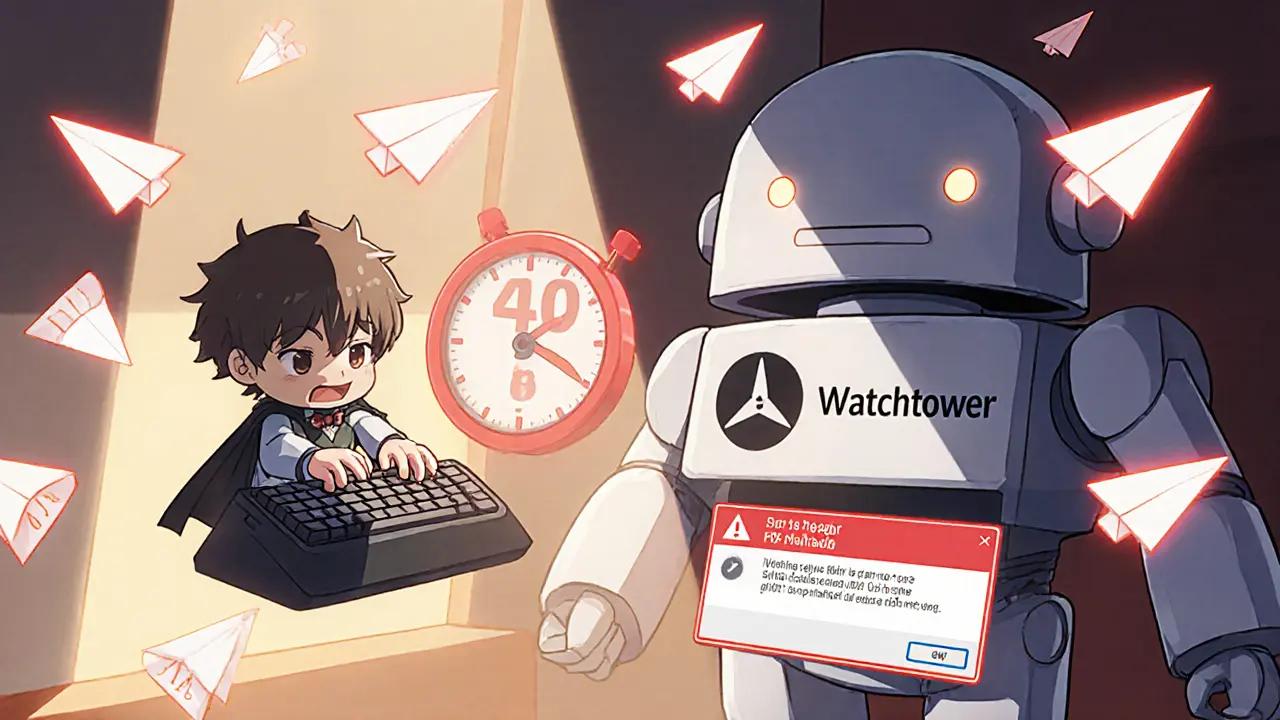
Watchtowers: The Safety Net You Didn’t Know You Needed
To fix the “stay online” problem, the community built watchtowers. These are third-party services that monitor your state channels for you-while you sleep, travel, or forget your phone. They don’t hold your funds. They don’t control your keys. They just watch the blockchain for any attempt to close a channel with an outdated state. If they spot one, they automatically submit your latest signed state and claim your funds. Lightning Labs reports that as of August 2023, 38% of active Lightning Network channels are protected by watchtowers. Services like Satoshi’s Watchtower, Watchtower.casa, and others charge a small fee or ask for a small donation. Some are even open-source and self-hosted. Users who use watchtowers report a 90% drop in security anxiety, according to Ethereum Stack Exchange. It’s not perfect, but it turns a manual, high-risk task into a passive, reliable one.State Channels vs. Other Layer 2 Solutions
State channels aren’t the only way to scale blockchains. Rollups and sidechains are bigger in volume. But they’re not the same. - Rollups (like Optimism or zkSync) batch many transactions and post a cryptographic proof to the main chain. Anyone can verify the proof. They’re more secure for open participation but slower and less private. - Sidechains (like Polygon PoS) have their own validators. You have to trust them. That’s the opposite of decentralization. State channels are different. They’re peer-to-peer. Only the participants matter. No validators. No batched proofs. Just direct, signed agreements. That’s why they’re perfect for:- Micro-payments (e.g., paying for streaming content by the second)
- Online gaming (real-time in-game purchases)
- Recurring payments (like rent or subscriptions)
- Interacting with DeFi protocols (you can’t join a liquidity pool from a state channel)
- One-off payments to strangers (you need to open a channel first)
- Users who can’t or won’t monitor their channels
Security Gaps and Developer Risks
Even if you’re tech-savvy, building a secure state channel app is hard. A 2023 ConsenSys survey of 286 blockchain developers found a 3-6 month learning curve just to get started. The biggest mistakes?- Not properly revoking old states
- Storing the latest state insecurely (on a cloud drive or phone backup)
- Forgetting to sign every update
- Using weak signature validation

Who Uses State Channels-and Why It’s Not for Everyone
A 2023 University of Cambridge study found that 89% of Lightning Network users have advanced blockchain knowledge. That’s not an accident. State channels demand responsibility. You’re not just using a service. You’re managing your own security. You need to:- Understand cryptographic signatures
- Know how to back up your latest state
- Set up monitoring (or pay for a watchtower)
- Respond quickly if something looks off
The Future: Can State Channels Scale Beyond Pairs?
Right now, most state channels are between two people. That’s fine for payments. But what if you want to play a multiplayer game with five players? Or make a chain of payments across ten channels? Projects like Perun (funded by the Ethereum Foundation) are building generalized state channels that support multi-party interactions. They use complex cryptographic techniques to link multiple channels into a network, maintaining security without needing every participant to sign every update. It’s early. But if it works, state channels could move beyond micropayments into full decentralized apps. For now, though, they remain a niche tool. Not because they’re unsafe. But because they require you to be the guardian of your own security.Final Thought: Security Isn’t a Feature. It’s a Habit.
State channels don’t make you trustless. They make you responsible. The blockchain doesn’t protect you. Your vigilance does. If you’re willing to monitor your channels, use a watchtower, back up your states, and understand the risks-you get speed, privacy, and control. No middlemen. No fees. No waiting. If you’re not? You’re better off using a rollup or a trusted wallet. There’s no shame in that. The best security system is the one you’ll actually use.Are state channels safe from hacking?
State channels are not vulnerable to traditional blockchain hacks like smart contract exploits or 51% attacks. Their security comes from cryptographic signatures and economic penalties. If someone tries to cheat by submitting an old state, the honest party can prove it and get the cheater’s funds slashed. The real risk isn’t hacking-it’s losing your latest signed state or failing to monitor the channel during the dispute window.
Do I need to be online 24/7 to use a state channel?
Technically, yes-but you don’t have to do it yourself. You can use a watchtower service that monitors the blockchain for you and automatically responds if someone tries to cheat. Many services are free or low-cost, and they reduce your security burden significantly. Still, you should ensure your latest state is backed up securely, even if you’re offline.
Can I lose money in a state channel even if I didn’t do anything wrong?
Yes. If you lose your latest signed state update and your counterparty closes the channel with an older, more favorable balance, you won’t be able to prove your correct balance. The contract only accepts the latest valid signature. That’s why backing up your state-on multiple secure devices-is critical. This isn’t a flaw in the protocol. It’s a user responsibility.
What’s the difference between a state channel and a sidechain?
A sidechain has its own set of validators who confirm transactions. You have to trust those validators to be honest. A state channel has no validators. Only the participants sign off on each transaction. Security comes from mutual cryptographic agreement and penalties, not from a separate network. That makes state channels more decentralized but less scalable for open participation.
Why aren’t state channels used more in DeFi?
DeFi apps need to interact with other protocols-like lending platforms or exchanges. State channels are closed loops between known participants. You can’t easily connect a state channel to a decentralized exchange or withdraw liquidity from a pool. Rollups and zk-rollups handle this better because they still post data on-chain. State channels are great for direct, frequent payments-not for complex financial interactions.
Is there a way to automate state channel monitoring?
Yes. Watchtowers are automated services that monitor the blockchain for fraudulent channel closures on your behalf. Services like Watchtower.casa, Satoshi’s Watchtower, and others can be set up to alert you or act automatically. Some are open-source and can be self-hosted. Using one reduces your risk dramatically and is now considered a best practice by experienced users.


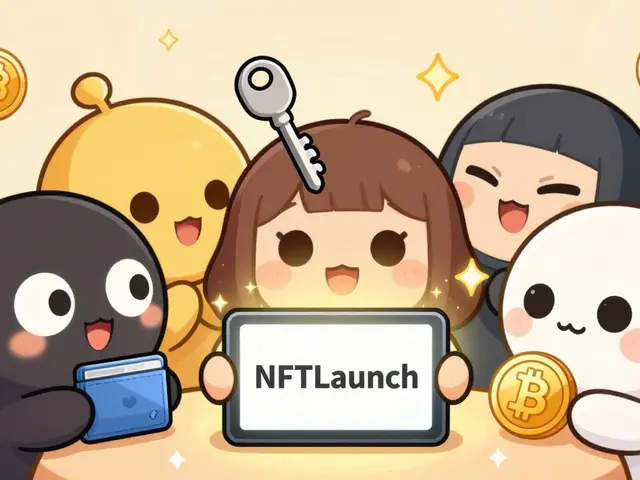
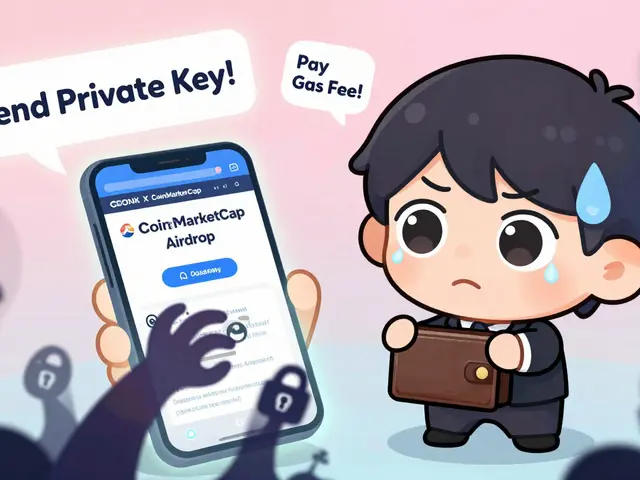

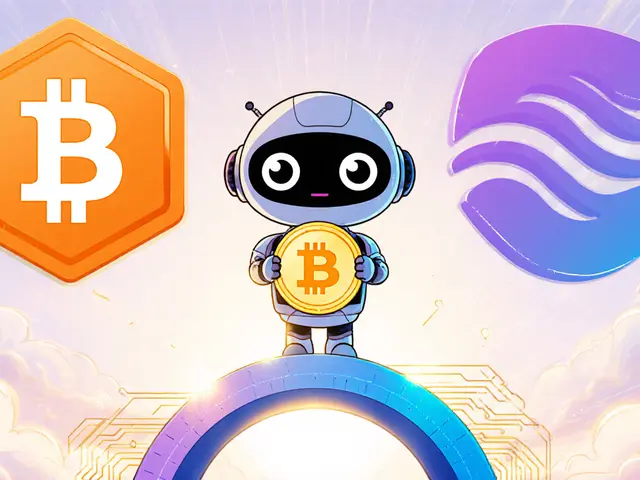
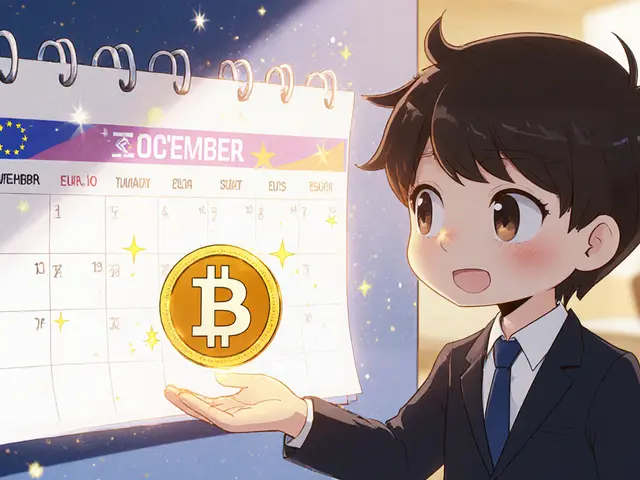
Emily Unter King
November 2, 2025 AT 12:59State channels are a cryptographic marvel-but only if you treat them like a vault, not a piggy bank. Every signed state is a legally binding notarized document. Lose it, and you’ve just handed over your keys to a stranger. The blockchain doesn’t care if you forgot to back up. It only sees signatures. No mercy. No refunds. No second chances. This isn’t DeFi. This is digital contract law with crypto collateral.
Nitesh Bandgar
November 4, 2025 AT 03:28YOOOOOOO this is why I hate crypto!!!!!!! You gotta be online 24/7 like some kind of digital monk?????? And if you sneeze wrong and your phone dies?????? POOF your life savings GONE????????? Who designed this??? A sociopath with a PhD in anxiety??????
Jessica Arnold
November 4, 2025 AT 04:09There’s a profound epistemological shift here: we’re moving from trust in institutions to trust in cryptographic inevitability. The blockchain isn’t a guardian-it’s an impartial arbiter activated only in crisis. This mirrors ancient Greek agonistic systems, where justice was enforced through deterrence, not surveillance. The watchtower? It’s the modern agora’s sentinel. But who polices the sentinel? That’s the real question.
Cierra Ivery
November 5, 2025 AT 18:29Wait-so you’re telling me… that if I don’t monitor my channel, someone else can just… take my money… by submitting an OLD state… and the system… just… lets them??!!?? And you call this ‘security’??!!?? This isn’t innovation-it’s a trap disguised as a feature!! You’re not decentralized-you’re just abandoned!!
Chloe Walsh
November 6, 2025 AT 17:24Look I just want to send my friend $2 for coffee and now I have to become a blockchain sysadmin?? I don't even remember my seed phrase and you want me to back up signed states?? Like what am I even doing here?? This is why I switched to PayPal
Stephanie Tolson
November 7, 2025 AT 06:08Watchtowers are the unsung heroes of the Layer 2 ecosystem. They’re not perfect, but they turn a terrifying manual responsibility into something passive and reliable. If you’re using state channels and not using a watchtower, you’re not being clever-you’re being reckless. Set one up. It’s like having a seatbelt for your crypto. You won’t notice it until you need it.
Anthony Allen
November 8, 2025 AT 15:51I’ve been using Lightning for a year now. I use Watchtower.casa and back up my state to a hardware wallet and an encrypted USB. It’s not hard. It’s just different. Most people think crypto is about getting rich quick. But the real win is owning your security. That’s the real upgrade.
Megan Peeples
November 8, 2025 AT 23:02Oh, so now we’re supposed to trust… third-party watchtowers? Who audits them? Who’s to say they’re not colluding with miners? Or worse-government agents? This isn’t decentralization. This is outsourcing your paranoia to a company with a .casa domain. Pathetic.
Sarah Scheerlinck
November 9, 2025 AT 15:59I really appreciate how this post doesn’t sugarcoat the responsibility. So many people treat crypto like a game. But state channels? They’re a covenant. You’re not just using tech-you’re entering a contract with your own discipline. That’s humbling. And honestly? That’s beautiful.
karan thakur
November 10, 2025 AT 01:21Of course they’re not safe. The entire system is designed to exploit the naive. You think you’re in control? You’re just a pawn in a game where the rules change every time you blink. The blockchain is a lie. The watchtower is a Trojan horse. They want you to think you’re safe so you give them more money.
Evan Koehne
November 12, 2025 AT 00:41So let me get this straight: the future of finance is… being awake? And the solution to your security problem is… paying someone else to watch your back? Wow. We really did it. We turned ‘trust no one’ into ‘trust this guy who charges $0.01 per month’.
Vipul dhingra
November 13, 2025 AT 08:30Everyone says state channels are hard but its just basic cryptography. If you cant handle signing states and backing up you shouldnt be using crypto at all. This is like complaining you cant drive a manual car. Its not the cars fault you never learned
Robert Bailey
November 13, 2025 AT 23:04Just use a watchtower. It’s like automatic updates for your security. No drama. No stress. You don’t need to be a genius. You just need to set it and forget it. Seriously. Do it.
Wendy Pickard
November 14, 2025 AT 20:15Thank you for writing this without hype. So many posts make state channels sound like magic. But this? This is real. And real is messy. And that’s okay. We just need to be honest about what we’re asking people to do.
Jeana Albert
November 16, 2025 AT 15:36YOU’RE TELLING ME I HAVE TO BE ONLINE 24/7 JUST TO KEEP MY OWN MONEY SAFE?? WHO DESIGNED THIS NIGHTMARE?? I’M NOT A ROBOT!! I SLEEP!! I GO ON VACATION!! I HAVE A LIFE!! THIS ISN’T FREEDOM-THIS IS SLAVERY WITH BITCOINS!!
Natalie Nanee
November 17, 2025 AT 05:09I tried state channels. Lost $400 because I didn’t back up. Now I use a custodial wallet. At least when they get hacked, I can cry to the CEO and they’ll maybe refund me. This ‘you’re responsible’ nonsense is just capitalism pretending to be philosophy.
Eric von Stackelberg
November 17, 2025 AT 18:30Let me be clear: the entire premise of state channels is a mathematical illusion. The fraud proof only works if the honest party can act in time. But what if the watchtower is compromised? What if the blockchain is forked? What if the signature algorithm is backdoored by a nation-state? The system assumes perfect adversarial conditions-but human systems never operate in perfect conditions. This isn’t security. It’s faith in an unprovable model.
And yet-here we are. We’ve built a cathedral on quicksand and called it innovation. We glorify the ‘trustless’ system while silently outsourcing our safety to unregulated third parties with no accountability. The watchtower is not a solution. It’s a Band-Aid on a hemorrhage.
The real failure isn’t in the code. It’s in the human expectation that technology can absolve us of responsibility. We want speed without vigilance. Privacy without consequences. Freedom without discipline. State channels expose that delusion. They don’t solve security-they reflect it.
So yes, use a watchtower. Back up your states. Stay online. But don’t mistake preparation for safety. True safety is knowing when not to play.
Evan Koehne
November 19, 2025 AT 02:42So… you’re saying the whole thing is just a really expensive way to say ‘don’t be lazy’? And we’re supposed to be impressed? I mean… sure. If you’re into digital stoicism. But let’s not pretend this is progress. It’s just a fancy way to say ‘you’re on your own’.